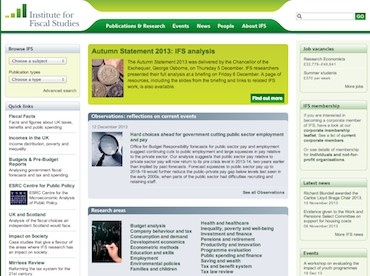Those born in the 60s and 70s are likely to be no better off in retirement than their parents' generation – unless they inherit, according to a new study.
Inherited wealth looks like the only major factor that could act to make individuals born in the 1960s and 1970s better off in retirement than their predecessors.
When compared with those born a decade earlier at the same age, these cohorts:
- Have no higher take-home income;
- Have saved no more of their previous take-home income;
- Are less likely to own a home and probably have lower private pension wealth;
- Will tend to find that their state pensions replace a smaller proportion of previous earnings.
These are among the main findings of a report by IFS researchers, funded by the Joseph Rowntree Foundation, the IFS Retirement Saving Consortium and the Economic and Social Research Council.
It found that since the Second World War, successive cohorts have experienced higher incomes and higher living standards than the previous generation, as they have benefited from rising national income but this has stalled over the last decade.
{desktop}{/desktop}{mobile}{/mobile}
Working-age adults do not currently have higher incomes (after adjusting for inflation) than their predecessors born 10 years earlier had at the same age (eg 40-year-olds now have no higher incomes than 40-year-olds a decade ago).
Looking at the major components of household wealth for different birth cohorts under current policy plans (including the planned introduction of the single-tier pension), state pension entitlements for individuals born in the 1960s and 1970s will tend to replace a smaller proportion of previous
earnings than is the case for those currently above, or around, the state pension age.
This difference is particularly marked for higher earners.
The rapid switch away from defined benefit (final salary) pension plans towards typically less generous defined contribution plans (in the private sector) will have affected currently younger cohorts significantly more
than older ones.
In addition, individuals born in the 1970s are taking longer than their predecessors to get on the housing ladder.
However, it looks like later cohorts will receive much more from inheritances.
Those who are already wealthiest expect to receive the most inheritance in future. For example, among those born in the mid-1970s, 35% of the wealthiest third
expect to receive an inheritance worth at least £100,000, compared with just 12% of the least wealthy third.
Andrew Hood, a research economist at IFS and an author of the report, said: "Since the Second World War, successive cohorts have enjoyed higher incomes and living standards than their parents.
"Yet the incomes and wealth of those born in the 1960s and 1970s look no higher than the cohorts who came before them. As a result, younger cohorts are likely to have to rely on inheritances to be better off in retirement than their predecessors.

